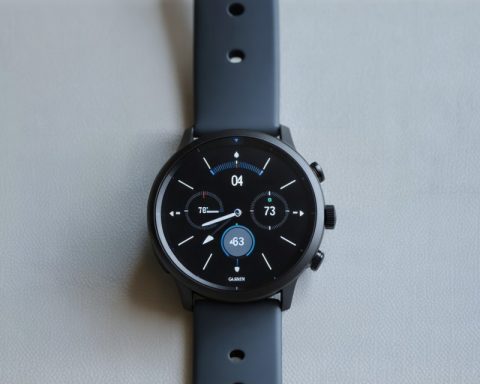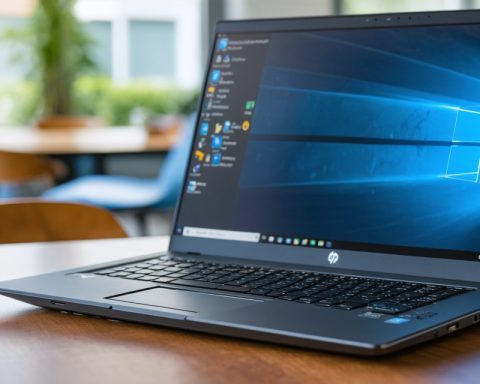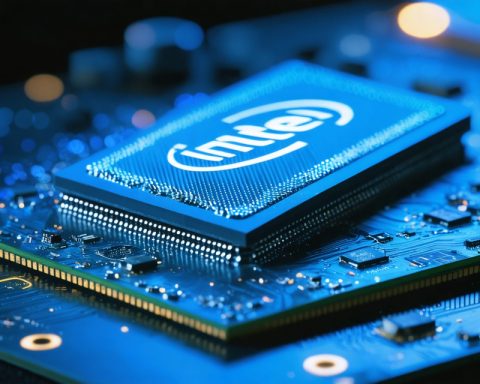Nokia’s Bold Share Buyback Program
In a significant financial maneuver, Nokia has successfully acquired 872,093 shares at a weighted average price of €4.34 on the Helsinki Stock Exchange, accumulating a hefty total of around €3.78 million. This initiative amplifies Nokia’s holdings to an impressive 227,346,987 shares.
The company initiated its share buyback program on November 25, 2024, shortly after announcing the decision just three days prior. This ambitious program, which is authorized to last until December 31, 2025, aims to repurchase up to 150 million shares, with a budget cap set at €900 million.
This strategic repurchase is designed to counteract share dilution and firmly showcases Nokia’s commitment to enhancing shareholder value. Transactions are being facilitated through BofA Securities Europe SA, affirming the solid backing of financial expertise in this initiative.
Nokia continues to solidify its reputation as a leader in the realm of B2B technology, focusing on innovative network solutions that cater to the future’s demands. With a robust foundation in mobile, fixed, and cloud networks and the groundbreaking efforts of Nokia Bell Labs, the company is poised to deliver superior network solutions that foster expansion and commercialization across various platforms.
For more detailed insights, please refer to the official press release from Nokia.
Nokia’s Bold Share Buyback Program
Nokia’s recent share buyback program represents a daring financial strategy aimed at bolstering shareholder value and counteracting dilution. The acquisition of over 872,000 shares at a total cost of approximately €3.78 million highlights the company’s robust confidence in its future prospects, particularly in the realm of network solutions. Authorizing up to €900 million for repurchasing 150 million shares demonstrates a significant commitment to maintaining a healthy stock valuation and shows Nokia’s intent to remain a dominant player in an increasingly competitive technology market.
The impact of such financial maneuvers extends beyond the balance sheet, presenting far-reaching implications for various stakeholders, including the environment, humanity, and the global economy. As Nokia positions itself as a leader in next-generation technology, its activities can influence advancements in sustainable practices and the digital economy, which are critical components of our future.
One of the crucial connections to the future of humanity lies in Nokia’s focus on innovative network solutions. As communications technology evolves, so too does the environmental impact of these advancements. For instance, the expansion of 5G networks enables more efficient technologies in various sectors, including transportation, agriculture, and energy. These advancements can lead to reduced carbon footprints, smarter waste management systems, and improved resource efficiency.
Moreover, Nokia Bell Labs’ commitment to developing cutting-edge solutions encourages sustainable practices in tech-driven sectors. By enabling the Internet of Things (IoT), Nokia helps industries reduce their environmental impact through smart monitoring systems that optimize resource use and minimize waste. This critical push for sustainability aligns with global climate goals and presents opportunities for economic growth, particularly in sectors focused on green technology.
On a humanitarian level, access to better network solutions translates into enhanced communication capabilities. In underserved regions, improved connectivity fosters educational opportunities, access to healthcare information, and economic development. As Nokia invests in expanding its technological infrastructures, it empowers communities by promoting equality and inclusivity in the digital age.
Furthermore, the economic implications of Nokia’s share buyback program may reflect a broader trend in the tech industry. Successful companies that prioritize shareholder value while simultaneously investing in innovative technology contribute to market stability and investor confidence. This, in turn, can lead to increased investments in research and development, fostering a cycle of growth that benefits the industry and society as a whole.
In summary, Nokia’s strategic share buyback isn’t just a financial move; it’s a part of a larger narrative connecting technology with environmental stewardship, social responsibility, and economic vitality. As the company positions itself to leverage its technological prowess, the reverberations of its actions will play a crucial role in shaping a sustainable and equitable future for humanity. The choices made by industry leaders now can significantly influence the trajectory of global development, making the intertwined fates of technology and society more critical than ever.
Nokia’s Ambitious Share Buyback: A Strategic Move for Shareholder Value
In a bold financial strategy, Nokia has initiated an extensive share buyback program, reflecting the company’s robust commitment to enhancing shareholder value. Recently, Nokia acquired 872,093 shares at a weighted average price of €4.34 on the Helsinki Stock Exchange, totaling approximately €3.78 million. This acquisition increases Nokia’s holdings to an impressive 227,346,987 shares.
Share Buyback Program Overview
Nokia launched the share buyback program on November 25, 2024, shortly after making the announcement on November 22. This substantial initiative, set to run until December 31, 2025, aims to repurchase up to 150 million shares, with a budget cap of €900 million. The program is designed to counteract any dilution of shares and reaffirm Nokia’s dedication to delivering value to its shareholders. The transactions are being conducted through BofA Securities Europe SA, highlighting the company’s reliance on reputable financial expertise.
Key Benefits of Nokia’s Share Buyback Program
– Enhanced Shareholder Value: The primary aim is to return capital to shareholders and improve earnings per share by reducing the number of outstanding shares.
– Resilience Against Market Fluctuations: Share buybacks can help stabilize the stock price amidst market volatility, demonstrating confidence in the company’s financial health.
Nokia’s Market Position and Innovations
Nokia continues to enhance its reputation as a leader in the B2B technology sector, focusing on innovative network solutions and next-generation technologies. The company is strategically poised to deliver advanced solutions across mobile, fixed, and cloud networks, driven by the innovations spearheaded by Nokia Bell Labs.
Trends in Corporate Share Buyback Programs
– Increased Popularity: Corporate share buybacks have gained traction in recent years as companies aim to improve stock performance and return cash to shareholders.
– Long-term Strategy: Companies like Nokia view share buybacks as a long-term strategy to demonstrate financial solidity and commit to wealth generation for investors.
Insights and Predictions
Analysts predict that as the global economy stabilizes, more organizations, including Nokia, will likely increase their share repurchase activities. This trend can lead to elevated stock prices and increased investor interest.
Pros and Cons of Share Buybacks
Pros:
– Increases shareholder value and earnings per share.
– Can help to project confidence in the company’s long-term profitability.
– Offers flexibility in allocating capital compared to dividends.
Cons:
– May divert resources from key investments in research and development.
– Potentially viewed negatively if the market perceives the buyback as a signal that the company lacks growth opportunities.
For more detailed insights and updates, you can visit the official Nokia page at Nokia.


















